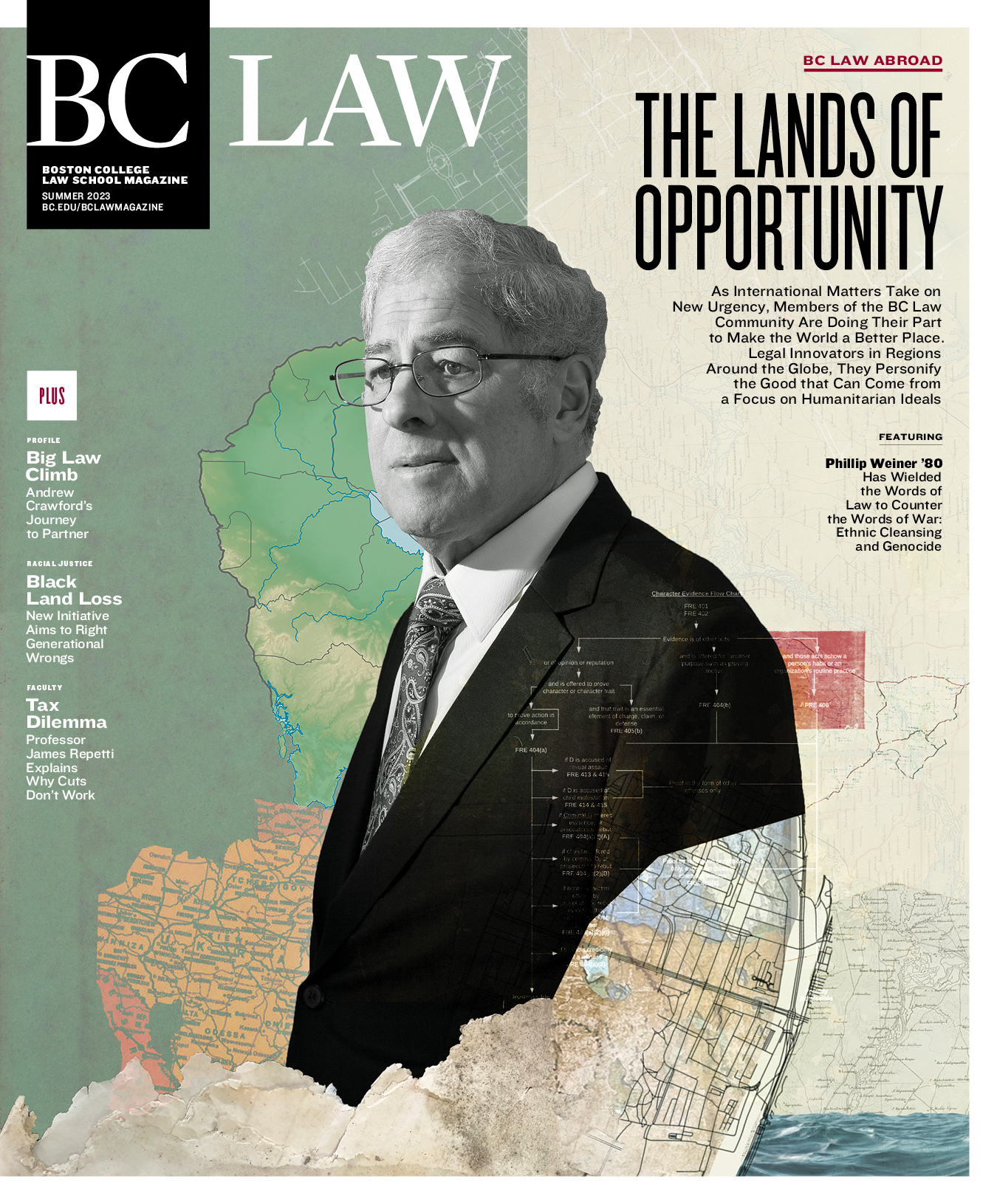Cecilia Vieira de Melo is a Brazilian human rights lawyer based in Rio de Janeiro. Now a staff attorney for the US-based nonprofit Earth- Rights International, de Melo’s transformation from corporate lawyer to dedicated human rights worker started at BC Law, while studying for her LLM.
Speaking from Rio by Zoom, de Melo describes how her year in Boston introduced her to legal theory and philosophy, and international human rights law. Professor Paulo Barrozo “was like a light, a guide,” who helped her to explore new paths, she says.
A lecture at BC Law by Earth Rights co-founder Katie Redford, about innovative transnational litigation strategies on behalf of communities against large corporations, fired de Melo’s imagination. She tracked the organization’s progress through the years in which she worked for Brazilian human rights NGOs and in Rio de Janeiro’s state parliament on issues related to climate and environmental justice, human rights, and development.
In July, 2021, de Melo joined EarthRights as the organization’s first representative in Brazil. Since then, she has focused on building relationships with local NGOs and with indigenous communities threatened by transnational megaprojects, often involving mineral extraction, wholesale logging, and agribusiness.
Among the groups she works with are quilombola communities, rural settlements founded by descendants of enslaved people, whose sustainable practices have preserved their land in pristine condition. “These territories are very coveted by transnational corporations,” says de Melo, and communities are besieged by extractive and infrastructure projects that damage the environment and encroach on their rights to maintain their land.
In work that demands patience and resilience, de Melo takes inspiration from two things: the Brazilian tradition of assessoria jurídica popular, akin to the US tradition of “movement lawyering,” of using the law in strategic and tactical ways to support grassroots movements, and the sense that every new community, every new organization she works with offers invaluable lessons. “You feel like there’s always something for you to learn; that makes it new all the time,” she says.
To read other pieces about BC Law abroad, please click here.




